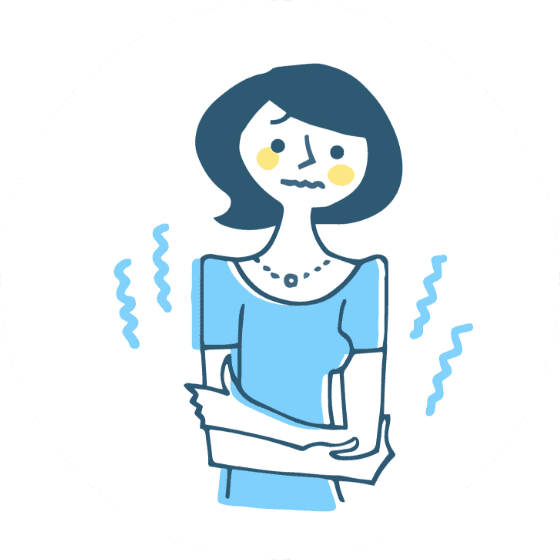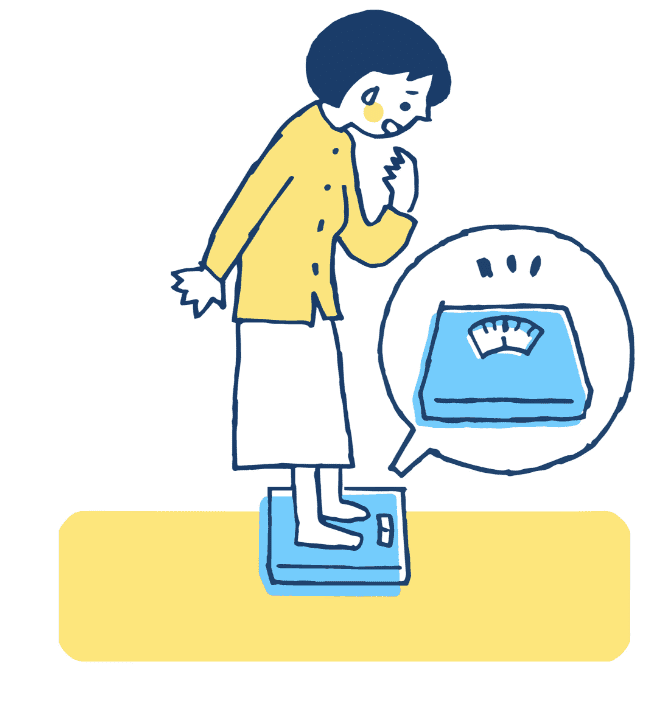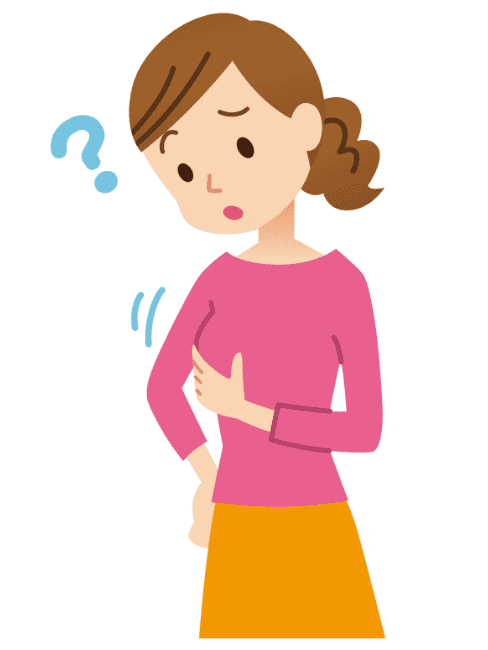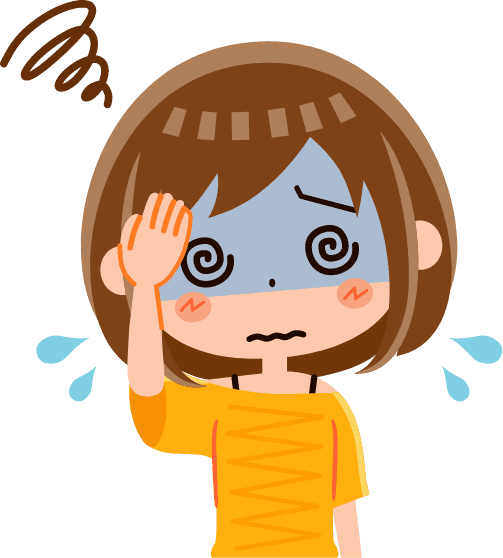Physical Concerns and Problems Medical Checkup with or without Insurance
Treatments Covered by Medical Insurance
Menstrual Problems
Although menstrual cycles vary between individuals, cycles that span between 25 and 38 days are considered normal. A long cycle that spans over 39 days is called oligomenorrhea (infrequent menstruation) and a short cycle that spans less than 24 days is called polymenorrhea (frequent menstruation).

Menopause
Menopause is a syndrome similar to dysautonomia, caused by reduced sex hormone secretion in men and women in their 40s and over.
Do you have these symptoms?
- Memory loss
- Cold hands & feet
- Headache
- Shoulder pain
- Frequent urination
- Insomnia
- Dry mouth
- Depression
- Hot flash
- Irritation
- Fatigue
- Dizziness
- Swelling
- Rapid heartbeat
- Hair loss
- Sweating
Check and print above, bring it when you see the doctor.
Cold Hands & Feet
There are various causes to cold hands and feet, a symptom of sensitivity to cold. If this symptom is left untreated, it could cause other symptoms and sicknesses including infertility.

Dizziness
Dizziness may be one of the menopause-related autonomic symptoms when tests show no abnormalities and sicknesses.

Placenta Injections
Placenta injections are said to be effective against menopause. These injections only use placenta from healthy people and they can improve natural healing power. Placenta is being recognized as a natural medicine that can prevent physical problems from becoming chronic.
* Conditions of receiving the injections covered by medical insurance:
- - Patient has menopause symptoms,
- - Diagnosis shows the necessity for the injections, and
- - Patient’s age is 59 and under.
* The injections may not be covered by the insurance in case over a month has passed after the diagnosis.
Self-paid Treatments
Credit Cards Accepted for Payment
Folic Acid Metabolic Test (saliva test) 13,000 JPY +tax
One in five Japanese lack folic acid due to a hereditary trait. By taking a sample from the lining of your mouth, whether you tend to lack folic acid genetically or not can be tested. We can advise on food and nutrient intake to supplement the lack of folic acid.

Breast Cancer Risk Assessment (blood test) 25,000 JPY +tax
Analysis of microRNA can assess risk of breast cancer. Unlike traditional tests, this assessment can catch cancer risk even when the tumor is still very small.

Hormone Test (blood test) incl. tax
Hormonal balance is measured and compared against the actual age of the patient. Learning about and improving your hormonal imbalance can help prevent physical problems and slow down aging. Hormones are measured mainly based on 4 indicators that are known to decrease along with aging.

Your Anemia Checklist
- I often skip breakfast.
- I often eat out or eat store-bought packed lunch.
- I often eat pre-cooked food or frozen meals.
- I’m currently on a diet.
- I often feel dizzy or light-headed when standing up.
- People often tell me I don’t look well. My skin looks dull.
- I get tired quickly. My body feels heavy.
- Going up a slight slope or a few steps causes shortness of breath and my heart beating fast.
- My nails are whitish, and easily break or get chipped.
- I sometimes have a hard time getting up in the morning.
Anemia is a condition in which the level of hemoglobin contained in red blood cells is low. The most frequently-seen type of anemia is iron-deficiency anemia. When there is less iron in the body, hemoglobin with the ability to carry oxygen is reduced, causing symptoms such as fatiguability (getting tired quickly), headache, shortness of breath and loss of motor coordination. Women need a lot of iron especially during menstruation and pregnancy.

